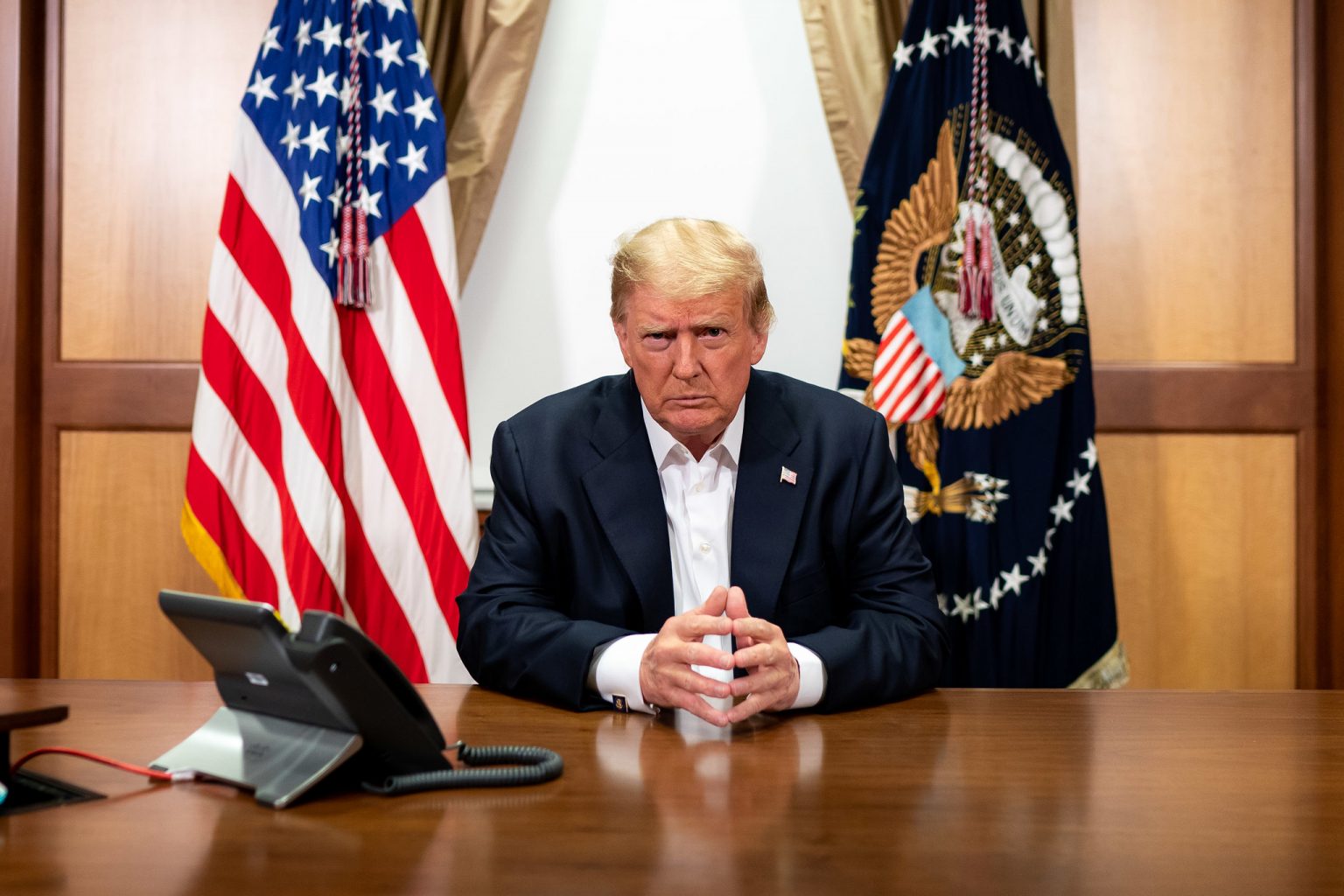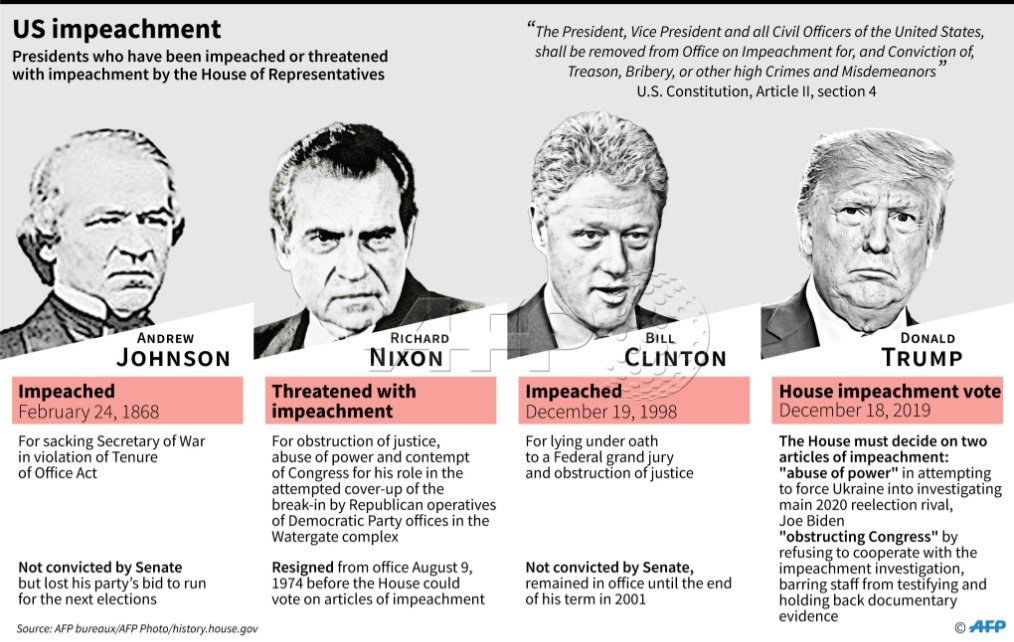How Many Presidents Have Gotten Impeached: A Comprehensive Overview
Impeachment is a significant political process that has shaped the landscape of American governance. Understanding how many presidents have been impeached is crucial for grasping the complexities of U.S. politics. In this article, we will explore the historical context, the impeachment process, and the details surrounding each presidential impeachment. By the end, you will have a clear understanding of this important topic and its implications for the future of American leadership.
The impeachment of a president is a rare occurrence, with only a handful of U.S. presidents facing this serious charge. It is a constitutional mechanism designed to remove a sitting president for "high crimes and misdemeanors." This article will delve into the specifics of the impeachment process, the presidents involved, and the outcomes of their respective impeachment proceedings.
As we examine the question of how many presidents have gotten impeached, we will discuss the intricacies of each case, the political climate at the time, and the lasting impact of these events on American society. Let's dive into the historical records and analyze the impeachment instances to better understand their significance.
- George Clooneys Twins Arrive In 2024
- Meet The Cast Of Reba A Comprehensive Guide To The Beloved Sitcom
Table of Contents
- The Impeachment Process Explained
- Presidents Who Have Been Impeached
- Outcomes of Impeachment Proceedings
- Historical Context of Impeachment
- Public Perception of Impeachment
- Conclusion
The Impeachment Process Explained
The impeachment process is outlined in the U.S. Constitution, specifically in Article II, Section 4. It states that the President, Vice President, and all civil officers of the United States can be removed from office for treason, bribery, or other high crimes and misdemeanors.
The process typically involves several steps:
- Investigation: The House of Representatives conducts an investigation to determine whether there is sufficient evidence to warrant impeachment.
- Articles of Impeachment: If the investigation leads to findings of wrongdoing, the House may draft articles of impeachment, which are formal charges against the president.
- House Vote: The full House then votes on the articles of impeachment. A simple majority is required for approval.
- Senate Trial: If the House approves the articles, the case moves to the Senate, where a trial is held. Senators act as jurors, and the Chief Justice of the Supreme Court presides over the trial.
- Senate Vote: After the trial, the Senate votes on whether to convict and remove the president from office. A two-thirds majority is required for conviction.
Presidents Who Have Been Impeached
1. Andrew Johnson
Andrew Johnson, the 17th President of the United States, was impeached in 1868. The primary charge against him was the violation of the Tenure of Office Act, which aimed to restrict the president's power to remove certain officeholders without the Senate's approval. The House of Representatives approved 11 articles of impeachment, but Johnson was acquitted in the Senate by just one vote.
- Unveiling Sams Reallife Companion From General Hospital
- Breaking News Andrea Scott Swifts Divorce Finalized
2. Richard Nixon
Richard Nixon, the 37th President, faced impeachment due to the Watergate scandal, which involved a break-in at the Democratic National Committee headquarters and subsequent cover-up efforts. Although the House Judiciary Committee approved articles of impeachment, Nixon resigned from office in 1974 before a full House vote could take place. He remains the only U.S. president to have resigned from office.
3. Bill Clinton
Bill Clinton, the 42nd President, was impeached in 1998 on charges of perjury and obstruction of justice stemming from his extramarital affair with Monica Lewinsky, a White House intern. The House passed two articles of impeachment, but Clinton was acquitted by the Senate in 1999, allowing him to complete his second term in office.
4. Donald Trump
Donald Trump, the 45th President, was impeached twice during his tenure. The first impeachment occurred in 2019, with charges of abuse of power and obstruction of Congress related to his dealings with Ukraine. He was acquitted by the Senate in early 2020. His second impeachment took place in January 2021 following the Capitol riot, where he was charged with incitement of insurrection. Again, he was acquitted by the Senate.
Outcomes of Impeachment Proceedings
The outcomes of impeachment proceedings vary significantly. In the cases of Andrew Johnson, Bill Clinton, and Donald Trump, none were removed from office. In contrast, Richard Nixon chose to resign before the impeachment process could be completed. This highlights the political implications of impeachment and the influence it can exert on a president's decision-making.
Historical Context of Impeachment
The concept of impeachment has deep historical roots, with the framers of the Constitution drawing inspiration from British parliamentary practices. Understanding the historical context in which impeachment was included in the Constitution provides insight into its intended purpose and the gravity of the situation when it is invoked.
Impeachment was designed as a check on presidential power, ensuring that no president could act with impunity. The framers recognized the potential for abuse of power and sought to establish a mechanism for accountability.
Public Perception of Impeachment
Public perception of impeachment has evolved over time, often reflecting the political climate of the era. During Andrew Johnson's impeachment, the nation was still recovering from the Civil War, leading to heightened tensions. In more recent cases, such as those involving Bill Clinton and Donald Trump, impeachment became a highly polarized issue, with public opinion often divided along party lines.
Surveys conducted during impeachment proceedings reveal that public support for impeachment can fluctuate based on the specific allegations, the political landscape, and the perceived integrity of the president. This dynamic nature of public opinion underscores the complexity of the impeachment process and its implications for American democracy.
Conclusion
In conclusion, the question of how many presidents have gotten impeached is a critical aspect of U.S. history that underscores the fragility of political power and the importance of accountability. So far, three presidents—Andrew Johnson, Bill Clinton, and Donald Trump—have faced impeachment, while Richard Nixon resigned before the process could conclude.
Understanding the impeachment process, the historical context, and the outcomes of these cases provides valuable insights into the challenges and responsibilities of the presidency. We invite you to share your thoughts on this topic in the comments below and explore more articles on our site to further your understanding of American political history.
Thank you for reading, and we hope to see you back on our site for more engaging and informative content!
- How Old Is Traci Braxtons Son Uncovering The Details
- All About Elijah Blue Allman A Legacy Unraveled

How many Presidents have been impeached twice? The Daily Net

Buy All Presidents of the united states Of America (15x20 in) COLOR

AFP News Agency on Twitter "Only two US presidents have been impeached